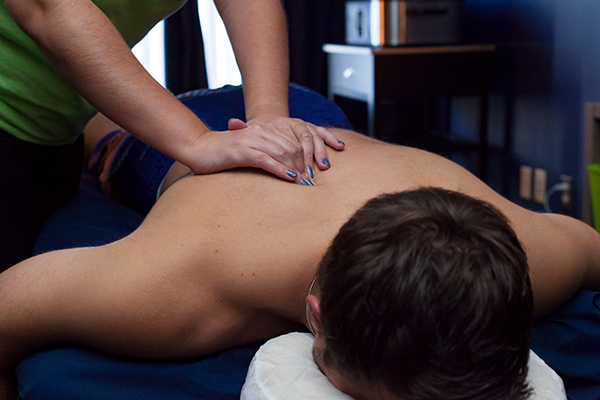
Because there is a lack of formal study, it is up to clients to decide if the treatments are working for them. Most other alternative treatments were removed from private health insurance due to a lack of good quality evidence.

For this reason, you are still able to claim Remedial Massage on your private health cover as an ‘extra’. Recently a review of complementary and alternative health treatments was conducted in Australia which found moderate quality evidence that Massage can provide similar effects as over-the-counter anti-inflammatory medications for both acute and chronic low back pain. People have reported benefits from Deep Tissue Massage for conditions such as sciatica, sports injuries, tennis elbow, fibromyalgia and plantar fasciitis however there has not been a huge amount of funding to conduct high quality studies to scientifically validate the effects of these treatments. What Issues and Injuries is Deep Tissue helpful for? This can also help with avoiding the tendency to tense up in reaction to the pressure that is being applied. Breathing deeply helps many people to consciously let go of tension they are carrying. They will be totally open to adapting the treatment to accommodate your wishes. Try not to feel inhibited in speaking with your therapist about what you are experiencing. Some areas may elicit pain or intense discomfort at a slight tough whilst other areas may be worked into with a lot of force without any pain at all. The therapist will probably check in with you throughout the treatment, but they cannot predict the changes you will experience as they move along your body. As your Massage Therapist is not psychic, it is crucial for you to communicate with them if you are experiencing pain that becomes intolerable. It’s important to understand that there is a difference between pain and this kind of discomfort. For some though, there will be a certain amount of discomfort which is experienced during the treatment. No, deep tissue massage is not always painful. You may be able to have a deep tissue massage, but the therapist will need to avoid the area. Some contraindications only apply to localised areas of your body.


There are many reasons why a person may opt to receive a deep tissue massage. Working fast and deep can cause too much pain and discomfort during the treatment. Due to the depth of the muscles that are being worked, the massage generally needs to be performed much slower than the more superficial modalities. Deep tissue techniques are designed to penetrate through the other muscles to access the deepest layers. For example, the upper back contains superficial muscles such as the trapezius, then underneath that there are the erector spinae muscles and deeper still are the transverse spinalis muscles. Many areas of the body have multiple layers of muscle on top of each other. Deep Tissue Massage What is Deep Tissue Massage?ĭeep Tissue Massage refers to massage techniques which engage the deeper muscle fibers of the body rather than just the superficial layers.


 0 kommentar(er)
0 kommentar(er)
